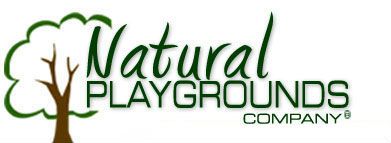By accepting you will be accessing a service provided by a third-party external to https://www.naturalplaygrounds.com/
What are some other online resources related to natural playgrounds?
You may find the following educational resources helpful.
- Attracting Butterflies
- Activities for young children: good listing of over 3400 activities to do with young children, many of which relate to nature and the seasons.
- Botany:internet directory
- Bird art for the garden: very graceful birds of PVC :( ...but nice!
- Butterfly gardens
- Bench Swing: Free Standing Arbor Swing: Step- by-step, do-it-yourself guide. For other project guides, use the "Search", top left.
- Children's Play in Natural Environments: A fact Sheet
- Children's landscapes in Norway
- Children, Youth, & Environments
- Children & Nature Network: its goal: establishing a global community of people and organizations committed to working together to reconnect children with nature
- Developmentally Appropriate Gardening for Young Children by Vicki Stoecklin
- Developing Adventure Playgrounds
- Early Childhood Care and Education Resources
- EIC: Using the Environment as an Integrating Context (EIC) for Learning; EIC is an education model that employs natural and community surroundings as the context for learning while taking into account “best practices in education.”
- enabling landscapes
- edible landscaping
- Earth-Friendly clothes for kids
- Globe Project: Uses a worldwide community of students, teachers, scientists, and citizens working together to better understand, sustain, and improve Earth's environment at local, regional, and global scales. Friendly website.
- Environmental art: great UK site showing children creating natural art following Andy Goldsworthy's ideas. Make sure to follow the link at page bottom.
- Fast Growing Trees: Great site for people who want well-established natural playgrounds in a hurry!
- Fast plants: fast-growing plants for research and education purposes, vetted by the University of Wisconsin
- Fencing: Unobtrusive, do-it-yourself fencing that is just the thing for child care centers wanting to avoid unattractive chain link fences.
- Ground Covers: Great little brochure about ground covers: a plant list and info about where to plant, foot traffic tolerance, speed of growth, and growing conditions
- Gardening ideas for kids: A comprehensive list of web resources for gardening with children"
- Garden Community Gardening for people of all ages, abilities and lifestyles
- Grass (self-replicating!!!), an answer to tough-use areas?
- Green Pages (same as Yellow Pages, but about "green" companies)
- Greening Schools - Students excited about their Natural Playground may broaden their interests to other sustainable School projects and check out this website.
- Green Street: fascinating Canadian Site; well done!
- Herb Gardens: Starting a garden for kids, growing, ideas, resources. Nice site.
- Hidden Harvest: This award- winning, non-profit group teaches gardening in low income areas!
- Incredible Benefits of Gardening!!
- Invasive Plants: National Park Service, Invasipedia New England
- Interactive sculptural environments
- Keeping Children Safe when they're playing outside
- Learning through landscapes
- Maintenance Guide for Natural Playgrounds
- Math in nature: Math lessons for natural playgrounds. Make sure to follow links at page bottom.
- Moss Acres: moss gardens; see also bigdipper
- Musical Instruments: make your own: Here and Here
- Nature Kindergarten: a look at Scotland's first nature kindergarten, with recommendations,study guides on using an outdoor classroom
- Natural gardening/landscaping materials: willow fences, etc., and then look through the outdoor gardening menu on the left
- Path Stabilization: DirtGlue stabilizes soil to make natural-looking paths.
- Playground Physics (and other resources) introduction to basic concepts in classical mechanics for upper elementary and middle school grades (4-7) relating the experience children have on the playground to basic physics concepts. Some refit req'd to use items that are all natural.
- Poisonous plants:
Simple list
Searchable Data Bases: Colorado State University
USFDA - Put up posts without digging holes! SeePin foundations!
- Rainwater Harvesting
- Play Naturally: A review of Children's Natural Play
- Rare plants in US
- Ropes
- RoSPA British site discussing playground safety in a more generous, common-sense way than here in the US.
- Sandpits: a fun account of how a large sandpit developed, with helpful hints
- Shade Planting
- Deep Shade Plants: Great list, lots of info, but hard to sort through
- Gardening in the Shade
- Societies: a comprehensive list of plant, garden, & related societies
- STEM Lesson planning guide for K-12: STEM lessons can help introduce elementary students to "scientific linear thinking, creative problem solving, inventiveness, and instilling the importance of collaboration and teamwork," according to TODAY.com. For high schoolers, who have more freedom to choose specific electives and who are often beginning to think about their future careers, exposure to STEM can offer useful hands-on experience.
- Sustainable Horticulture: UNH's Growing a Green Generation horticulture curriculum for pre-school to kindergarten age children
- Training in Natural Play: outdoor play training courses at the University of Gloucestershire may be a bit of a stretch, but at least it's being done!
- Therapeutic landscapes
- Trees for kids: all about trees; fun, interactive
- Tree Houses: fun, one-of-a-kind, universally accessible tree houses are beautiful additions to natural play environments.
- tree ID
- Urban forestry General tree info for urban areas
- USDA Natural Resources Conservation Service: soil surveys & maps, free help from the "Earth Team" to conserve environment; plant ID
- Water Gardening
- Willow structures for tips on building. Places to buy willow rods; Bluestem Nursery. Also buy Salix viminalis at local nurseries.

